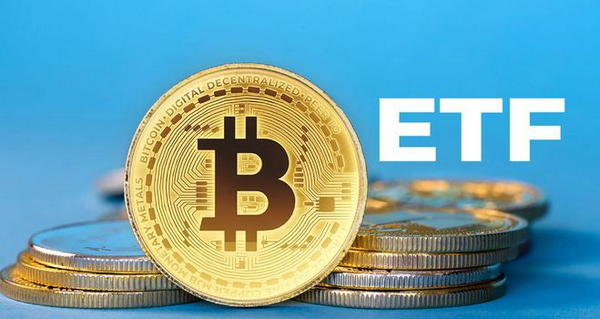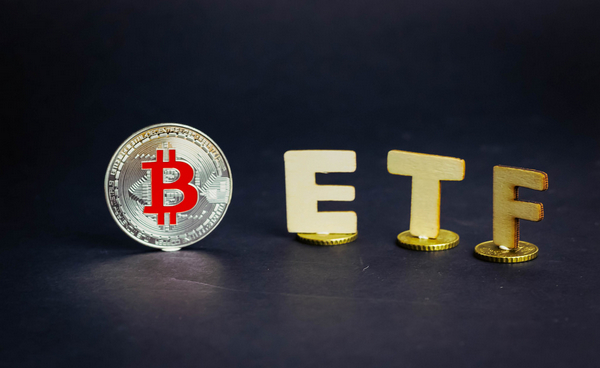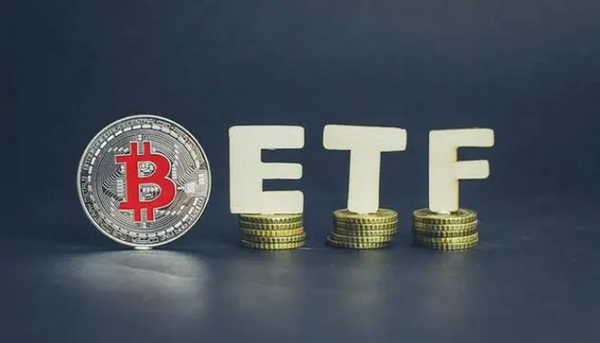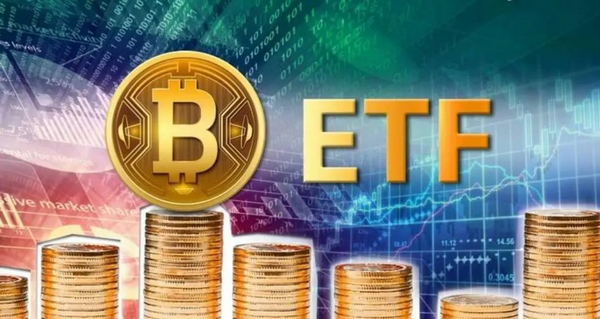Cryptocurrency Encyclopedia
Explore the future together and let everyone know the world of cryptocurrency equally!
-

- What does the approval of the Bitcoin ETF mean?
- Aug 26,2024 at 11:54am
Understanding the Significance of Bitcoin ETF Approval
What is a Bitcoin ETF?
A Bitcoin exchange-traded fund (ETF) is an investment vehicle that tracks the price of Bitcoin without the need for investors to hold the cryptocurrency directly. It is traded on traditional stock exchanges like any other stock or ETF.
What was the Significance of the First Bitcoin ETF Approval?
On October 19, 2021, the ProShares Bitcoin Strategy ETF (BITO) became the first Bitcoin ETF approved by the Securities and Exchange Commission (SEC). This marked a monumental milestone in the cryptocurrency industry for several reasons:
Increased Accessibility: BITO allowed traditional investors and financial institutions to invest in Bitcoin through the familiar framework of ETFs, making it more accessible for a wider audience.
Legitimization: The SEC's approval signaled a growing recognition and acceptance of Bitcoin as a legitimate asset class.
Price Fluctuations: BITO's launch influenced the price of Bitcoin, pushing it to new highs shortly after its debut.
Benefits of Bitcoin ETFs
Convenience: ETFs provide a convenient way to invest in Bitcoin without the complexities of managing a cryptocurrency wallet.
Diversification: Bitcoin ETFs can help investors diversify their portfolios by adding a potentially uncorrelated asset to their holdings.
Transparency: ETFs are subject to the same regulatory reporting requirements as other publicly traded securities, ensuring greater transparency and oversight.
Risks of Bitcoin ETFs
Volatility: Bitcoin is a highly volatile asset, and its price can experience significant swings. This volatility can be a double-edged sword for ETF investors.
Tracking Error: Bitcoin ETFs may not perfectly track the price of Bitcoin due to factors such as trading fees and liquidity constraints.
Regulatory Concerns: The SEC could potentially change its stance on Bitcoin ETFs in the future, which could impact their value.
Future Implications for Bitcoin and Cryptocurrency
The approval of Bitcoin ETFs has numerous implications for the future of Bitcoin and the wider cryptocurrency ecosystem:
Increased Adoption: ETFs can make Bitcoin more accessible to a broader range of investors, potentially increasing its adoption and use.
Institutionalization: ETFs can attract institutional investors who are looking for ways to gain exposure to Bitcoin without the risks of holding it directly.
Future Innovations: The success of Bitcoin ETFs could pave the way for the development of ETFs for other cryptocurrencies and blockchain-related assets.
Conclusion
The approval of the first Bitcoin ETF was a significant event that brought Bitcoin into the mainstream and provided investors with a convenient and regulated way to access the cryptocurrency. While there are both benefits and risks to consider before investing in Bitcoin ETFs, they have the potential to play a major role in the future adoption and institutionalization of digital assets.
-

- What does Bitcoin ETF mean?
- Aug 26,2024 at 11:53am
What is a Bitcoin ETF?
A Bitcoin exchange-traded fund (ETF) is an investment fund that tracks the price of Bitcoin. ETFs are listed on a stock exchange and can be bought and sold throughout the trading day. They offer investors a way to gain exposure to Bitcoin without having to buy the cryptocurrency directly.
How Do Bitcoin ETFs Work?
Bitcoin ETFs are backed by actual Bitcoin, which is held in a trust or custodian. The fund manager buys and sells Bitcoin in order to match the price of the ETF. Investors can buy and sell shares of the ETF just like they would any other stock.
Benefits of Bitcoin ETFs
Bitcoin ETFs offer several benefits to investors:
Convenience: ETFs provide a convenient way to invest in Bitcoin without having to store or manage the cryptocurrency directly.
Regulation: ETFs are regulated by the Securities and Exchange Commission (SEC), which provides investors with protections against fraud and abuse.
Diversification: ETFs allow investors to diversify their portfolios by adding Bitcoin, which has a low correlation to traditional investments.
Accessibility: ETFs are available to all investors, regardless of their size or sophistication.
Risks of Bitcoin ETFs
Bitcoin ETFs also come with some risks:
Price volatility: Bitcoin is a volatile asset, and its price can fluctuate rapidly. This volatility can translate into significant gains or losses for investors.
Regulatory uncertainty: The regulatory landscape for Bitcoin is evolving, and future regulations could potentially impact the value of ETFs.
Counterparty risk: ETFs are dependent on the actions of the fund manager and custodian. If these parties fail to meet their obligations, investors could lose money.
How to Invest in a Bitcoin ETF
To invest in a Bitcoin ETF, you can simply buy shares of the ETF on a stock exchange. You will need to have a brokerage account to do this.
Conclusion
Bitcoin ETFs provide investors with a convenient and regulated way to gain exposure to Bitcoin. They offer potential benefits such as diversification and accessibility, but they also come with risks such as price volatility and regulatory uncertainty. Investors should carefully consider these factors before investing in a Bitcoin ETF.
-

- Does the Bitcoin ETF trade 24 hours a day?
- Aug 26,2024 at 11:52am
Does the Bitcoin ETF Trade 24 Hours a Day?
Short Answer:
No, Bitcoin ETFs do not trade 24 hours a day.
Detailed Answer:
Bitcoin exchange-traded funds (ETFs) are financial instruments that track the price of Bitcoin. They provide investors with a convenient way to gain exposure to Bitcoin without having to directly purchase and store the cryptocurrency. However, unlike traditional ETFs that trade on stock exchanges during regular market hours, Bitcoin ETFs trade on specialized digital asset exchanges.
Digital Asset Exchange Trading Hours:
Digital asset exchanges, where Bitcoin ETFs are traded, typically have their own trading hours. These hours may vary depending on the exchange, but they generally operate within specific time frames. For example, major digital asset exchanges like Coinbase and Binance operate from 9 am to 4 pm UTC.
Impact on Bitcoin ETF Trading:
The limited trading hours of digital asset exchanges restrict the trading of Bitcoin ETFs. During the times when the exchanges are closed, trading in Bitcoin ETFs is suspended. As a result, the trading activity for Bitcoin ETFs is concentrated within the specified exchange trading hours.
Exceptions:
There are some exceptions to the 24-hour non-trading rule for Bitcoin ETFs. Some exchanges offer over-the-counter (OTC) trading for Bitcoin ETFs, which allows for trades to be executed outside of the regular exchange trading hours. However, OTC trading is typically reserved for large orders and may not be available to all investors.
Conclusion:
In general, Bitcoin ETFs do not trade 24 hours a day. The trading of these ETFs is limited to the specified hours of operation for the digital asset exchanges where they are listed. Investors should be aware of these trading hour constraints when considering investing in Bitcoin ETFs.
-

- When was the Bitcoin ETF approved?
- Aug 26,2024 at 11:50am
When Was the Bitcoin ETF Approved?
Background
A Bitcoin exchange-traded fund (ETF) is an investment fund that tracks the price of Bitcoin and trades on a stock exchange. The approval of a Bitcoin ETF has been highly anticipated by investors seeking a regulated and convenient way to gain exposure to the cryptocurrency.
First Approved Bitcoin ETF
The first Bitcoin ETF was approved by the United States Securities and Exchange Commission (SEC) on October 19, 2021. The ETF, called the ProShares Bitcoin Strategy ETF (BITO), started trading on the New York Stock Exchange (NYSE) on October 21, 2021.
Approval Process
The approval of the Bitcoin ETF involved a lengthy and rigorous process. BITO was filed with the SEC in December 2020 and went through multiple revisions before receiving final approval. The SEC considered factors such as the asset's underlying structure, custody arrangements, and potential market manipulation.
Impact of Approval
The approval of the Bitcoin ETF was a significant milestone for the cryptocurrency industry. It provided investors with an accessible way to hold Bitcoin without having to directly purchase and store the digital asset. The ETF also helped to legitimize Bitcoin as an investment class and attract a broader range of investors.
Subsequent Bitcoin ETFs
Since the approval of BITO, several other Bitcoin ETFs have been approved by the SEC. These include:
VanEck Bitcoin Strategy ETF (XBTF): Approved on October 22, 2021
Valkyrie Bitcoin Strategy ETF (BTF): Approved on October 25, 2021
Galaxy Bitcoin ETF (BTCG): Approved on December 19, 2021
AdvisorShares Bitcoin Strategy ETF (CRPT): Approved on March 31, 2022
Global X Bitcoin Trust (GBTC): Approved on April 6, 2022
Disclaimer:
The approval of Bitcoin ETFs does not guarantee their long-term success or safety. Investors should carefully consider the risks associated with investing in cryptocurrencies before making any investment decisions.
-

- What is a Bitcoin spot ETF?
- Aug 26,2024 at 11:50am
What is a Bitcoin Spot ETF?
A Bitcoin spot exchange-traded fund (ETF) is an investment fund that tracks the price of Bitcoin and allows investors to buy and sell shares of the fund, which represent ownership of Bitcoin. Unlike Bitcoin futures ETFs, which track the price of Bitcoin futures contracts, spot ETFs directly hold Bitcoin.
How Do Bitcoin Spot ETFs Work?
Bitcoin spot ETFs are structured similarly to traditional ETFs. They are typically managed by investment companies like BlackRock or Vanguard. These companies purchase Bitcoin and hold it in a trust, which is reflected in the ETF's share price. Investors can buy and sell shares of the ETF on exchanges, such as the New York Stock Exchange or Nasdaq.
Key Features of Bitcoin Spot ETFs:
Direct exposure to Bitcoin: Spot ETFs provide direct exposure to the price of Bitcoin, allowing investors to participate in the cryptocurrency market without having to buy and store Bitcoin directly.
Diversification: ETFs offer instant diversification as they hold a portfolio of assets (in this case, Bitcoin). This reduces investment risks compared to holding a single asset.
Regulation: Bitcoin spot ETFs are subject to regulatory oversight by the U.S. Securities and Exchange Commission (SEC). This provides investors with a layer of protection and assurance.
Liquidity: ETFs are highly liquid, meaning investors can easily buy and sell shares throughout the trading day.
Why Are Bitcoin Spot ETFs Important?
Bitcoin spot ETFs have the potential to:
Broaden access to Bitcoin: ETFs make Bitcoin more accessible to mainstream investors who may not have the technical expertise or comfort level to buy and store Bitcoin directly.
Increase institutional adoption: Spot ETFs can encourage institutional investors, such as pension funds and endowments, to allocate a portion of their portfolios to Bitcoin.
Improve market efficiency: By providing a regulated and transparent trading platform, spot ETFs can help improve the efficiency of the Bitcoin market.
Challenges Facing Bitcoin Spot ETFs
While Bitcoin spot ETFs have significant potential, they also face some challenges:
Regulatory approval: The SEC has been hesitant to approve spot ETFs due to concerns about the volatility and potential risks associated with Bitcoin.
Market manipulation: The cryptocurrency market is known for its volatility and susceptibility to manipulation. This could also affect the performance of spot ETFs.
Custody risk: Spot ETFs must ensure the safekeeping of the Bitcoin they hold, which could face cybersecurity risks and operational challenges.
Conclusion
Bitcoin spot ETFs are investment vehicles that offer direct exposure to the price of Bitcoin with added benefits such as diversification, regulation, and liquidity. They have the potential to broaden access to Bitcoin and increase institutional adoption. However, they also face challenges related to regulatory approval, market manipulation, and custody risk. As the cryptocurrency market continues to evolve and mature, it remains to be seen how Bitcoin spot ETFs will navigate these challenges and shape the future of the industry.
-

- Where is the Bitcoin ETF listed?
- Aug 26,2024 at 11:49am
Where is the Bitcoin ETF Listed?
A Bitcoin exchange-traded fund (ETF) is a fund that tracks the price of Bitcoin and trades on a stock exchange, making it easier for investors to gain exposure to the cryptocurrency without holding Bitcoin directly.
Listing of Bitcoin ETFs
Currently, there are only a handful of Bitcoin ETFs listed on major stock exchanges worldwide, primarily in the United States and Canada.
United States
ProShares Bitcoin Strategy ETF (BITO): Listed on the New York Stock Exchange (NYSE) in October 2021.
Valkyrie Bitcoin Strategy ETF (BTF): Listed on the Nasdaq Stock Market in October 2021.
Canada
Purpose Bitcoin ETF (BTCC): Listed on the Toronto Stock Exchange (TSX) in February 2021.
Evolve Bitcoin ETF (EBIT): Listed on the TSX in May 2021.
CI Galaxy Bitcoin ETF (BTCX): Listed on the TSX in June 2021.
Other Jurisdictions
3iQ Global Cryptoasset Fund (QBTC): Listed on the Toronto Venture Exchange (TSXV) in 2018.
VanEck Bitcoin Strategy ETF (EBTC): The first Bitcoin ETF in Latin America, listed on the Colombian Stock Exchange (BVC) in October 2021.
Note: The list above is non-exhaustive and may change as new Bitcoin ETFs are launched and listed in the future.
Conclusion
While Bitcoin ETFs have been gaining popularity, it is important to note that they come with their own set of risks and considerations. Investors should carefully research and understand the specific ETF they are considering before investing.
-
5 Best Crypto Coins For Long Term Investment
- Sep 20,2024 at 08:00pm
-
Intel Markets: The AI-Powered Blockchain and Trading Platform Primed for Massive Growth
- Sep 20,2024 at 08:00pm
-
CYBRO Presale Soars Past $2 Million: A One-in-a-Million NeoBank Investment Opportunity
- Sep 20,2024 at 07:56pm
-
The Best Crypto to Buy Now: Artemis Coin, TON, and Solana
- Sep 20,2024 at 07:56pm
-
SUI Crypto Records Breakout Run!
- Sep 20,2024 at 07:55pm
-
CYBRO Presale Exceeds $2 Million: A One-in-a-Million Next GEN DeFi Investment Opportunity
- Sep 20,2024 at 07:55pm

















































